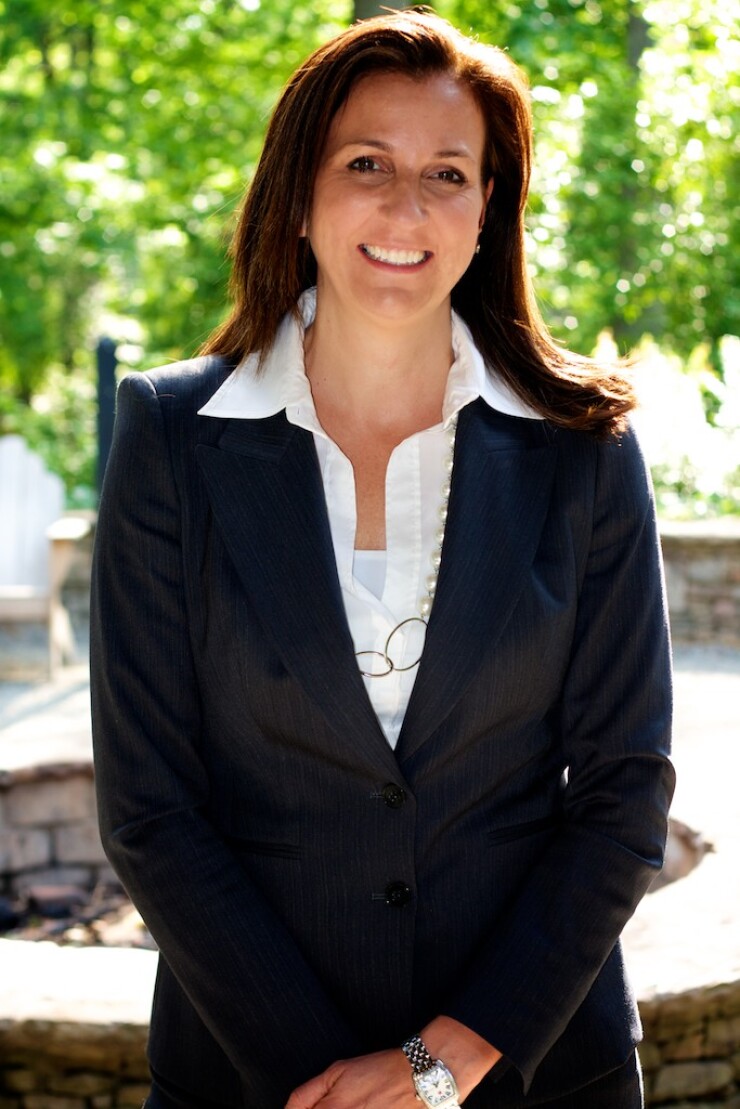AUSTIN, Tex. — Banks have become a victim of their own success at building digital channels.
That was the argument made by Rilla Delorier, executive vice president and chief strategy officer at Umpqua Bank in Portland, Ore., who said this week that customers have been trained to use digital channels, losing a chance to connect with bankers on a human level. As a result, customers have devalued the banking relationship, viewing it as something they should do themselves.
But Umpqua is looking to change that.
"We started to see more and more customers moving to digital," Delorier told an audience American Banker's Retail Banking conference here. "We needed to figure out how to take our customer intimacy strategy and bring it into the digital age."

Like all institutions, Umpqua has had to keep up with the largest banks' offerings in online banking, mobile banking, online account opening, and person-to-person payment systems like Zelle.
"We built hyperconnectivity with people and their devices, but distance was growing between people and their bankers," Delorier said. "Convenience was winning over conversations, transactions were more important than meaningful interactions, and AI was taking the place of authentic, real intelligence. We realized we have lost our connection with customers and customers remain financially fragile."
To that last point, she noted that during the recent 35-day government shutdown, many federal workers used up their emergency savings, 50% fell behind on bills, 25% had to defer their rent or mortgage payment, 25% stopped paying for a medical bill or prescription, and many had to turn to local food banks.
"Have we really helped people have the financial margin to weather a 35-day storm?" Delorier said. "We have an opportunity, because 78% of customers say they want financial advice from their banks, but only 28% are getting it today. Customers are overbanked and underserved."
Digital banking has played a role in this, she said.
"Our push to move customers to a lower cost, self-service channel has created distance and has made it harder for us to step in and have meaningful dialogues with our customers and help guide them," Delorier said. "We have lost the art of understanding the conversation in times when customers truly need somebody to turn to."
To help fill all these gaps, Umpqua developed a "human digital" strategy.
"We came up with a mission statement: personalized banking for all, anytime, anywhere," Delorier said. "Personalized banking for all is the human element of bringing value to customers through every customer, make our bankers more informed so they're available to customers in a higher-touch way."
Umpqua's GoTo app
Two years ago, the bank launched a subsidiary that built an app called GoTo that lets bankers interact with customers through an app. Customers choose a banker from a directory of profiles that includes photos, areas of expertise and hobbies (a mutual interest in cats, for example, has turned out to be important to customers). Then that person is designated to respond whenever that customer texts a question or problem to the bank. (Umpqua recently sold the technology division to Kony.)
The GoTo app brings some humanity back, Delorier said.
"People still like people," she said. "Your hairdresser has a name, your babysitter has a name, your doctor has a name. Why shouldn't your banker, the person who is helping you with your money, have a name?"
The app can also answer "should" questions, like should I pay down my home equity loan. Bots and AI, now matter how good they are, can't answer these types of questions, she said.
GoTo is meant to democratize private banking and make a personal banker with a name available to everyone, she said
"This is for people who don't have somebody to turn to because their balance sheet doesn't award them that luxury," she said. "We believe in the sanctity of the individual."
Today 12,000 Umpqua customers use GoTo. Four hundred new customers sign on each day.
"It's been a deliberately slow pilot because we had to train our bankers," Delorier said.
New customers who get GoTo become primary customers at twice the rate of customers who do not have GoTo, she said. The project is scalable, she said. Delorier estimates that one banker can cover 1,000 customers. Some cover 800 today.
"This is not instead of self-service, it's when a customer needs help," she said. "When you have a money-in-motion decision or you need help, you want a human who knows you. But that's not that often."
Culture, metric changes
Umpqua's human-digital strategy is forcing it to rethink culture and performance measurements, Delorier said.
"Putting our desire for sales on the back burner to allow a relationship to develop naturally and to not be driven by the daily sales report is a massive cultural transformation, even for Umpqua, which has DNA in service," she said. "We have gone through a two-year, inside-out cultural transformation. We need to change our mindset, change our hiring, our incentives, how we reward, our policies, our procedures."
Weight Watchers has been a role model, because the organization doesn't measure itself against use of its channels, it measures itself against whether or not clients achieve their goals.
"How can we as banks change our metric system to be about customer outcomes rather than our own efficiency and sales outcomes?" Delorier said. "I don't have the answer, but I want to partner with anyone in pursuit of answering this question. Because if we can answer this question for our industry, we will have made a huge contribution. Focusing on the bottom line is too low of a strategy. Let's not be in a race to the bottom."





